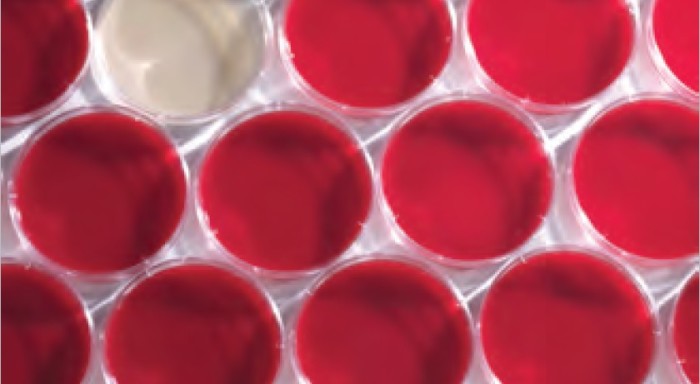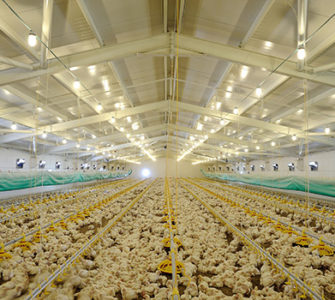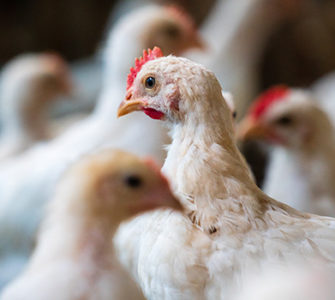Link between fishmeal, Eimeria and necrotic enteritis in broilers explored
Insights into how fishmeal in poultry rations and Eimeria infection may predispose broilers to necrotic enteritis come from a study by Australian investigators.
Although it is widely established that a high-protein, fishmeal-supplemented starter diet along with Eimeria infection can predispose birds to clinical necrotic enteritis after Clostridium perfringens infection, exactly how is not clearly known, scientists say. Consequently, they analyzed the cecal microbiota of four groups of broilers with the use of deep pyrosequencing — a method of DNA analysis.
One group was infected with Eimeria and received a control diet, another received a fishmeal-supplemented diet and a third group was infected with Eimeria and in addition received fishmeal. A fourth group without Eimeria did not receive fishmeal and served as a control.
Fishmeal had a strong effect on intestinal microbiota, similar to the reported effects of C. perfringens infection. Investigators also noted major changes in the prevalence of various lactobacilli, while total, culturable Lactobacillus counts remained stable. Other microbiota such as Ruminococcaceae were affected, as determined by an increased number of operational taxonomic units — a method of defining a species based on DNA sequence results.
Eimeria induced different changes in microbiota. For example, Ruminococcaceae were reduced in number, and three unknown clostridium species increased in abundance. Eimeria did not significantly influence changes in measures such as pH or formic acid, while fishmeal induced dramatic changes.
“Both fishmeal feeding and Eimeria infection induced significant changes in the gut microbiota; these changes may play an important role in predisposing birds to necrotic enteritis,” say S.B. Wu, of the University of New England, Australia, and colleagues in Veterinary Microbiology online, March 14, 2014.1
1Wu SB, et al. Two necrotic enteritis predisposing factors, dietary fishmeal and Eimeria infection, induce large changes in the caecal microbiota of broiler chickens. Vet Microbiol. 2014 Mar 14;169 (3-4):188-97.
Posted on February 28, 2015

















